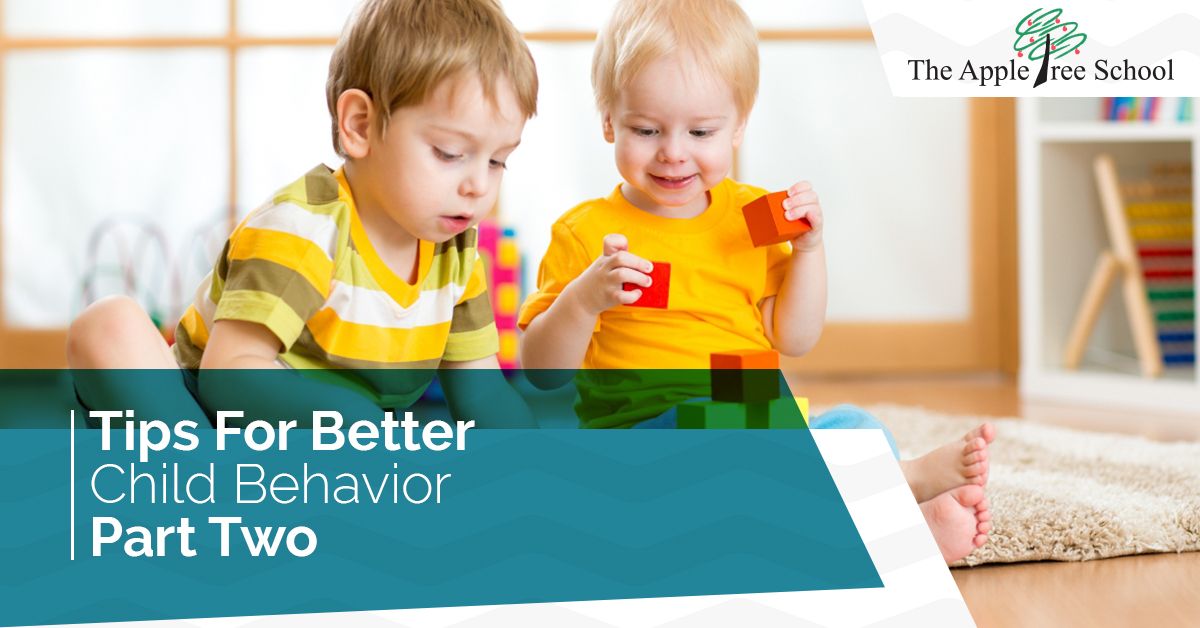We know how hard behavioral issues in your children can be to deal with. Although we have a had a number of cases where we’ve helped turn around a trouble-making child, the real key comes from good parents. In part two of our Tips to Better Child Behavior blog series, we at Apple Tree School in Houston offer another set of tips to help you turn your child’s behavior around.
Exercise
Like a routine sleep schedule, exercise is one of the ways that you can simply increase your child’s health and help them naturally begin to behave better. Exercise is key to having the energy level and focus your child needs to feel good about themselves. Paired with our first tip, exercise can be especially effective, a great way to have positive one-on-one time with your child, and provide them with an excellent role model.
You Are The Example
Children feed off of your energy and follow your example. Look at your own behavior and see if there is anything hypocritical about it. When you are reactive, they are reactive. Further, simply being more relaxed, smiling more, and being happier can help cut the negative energy and stress that children feed off of when misbehaving. It’s impossible and unhealthy to be positive all the time, or pretend to be, but a bit of effort in relaxing and smiling can help your child behave in a similar way.
Get a Routine and Stick To It
Despite your child’s seeming drive to do whatever they want, they thrive in a set routine. Define when they are expected to get up and get ready for school, what happens after school, meal times, and bedtimes. While giving them options between positive choices, and how the stages of the routine will go. Writing or drawing out the daily schedule can be beneficial in helping your child stick to it.
Solve Problems In Healthy Ways
You aren’t here to arbitrate all of their life, you’re here to help guide them into being independent, good people. Here at Apple Tree School, we use problem-solving strategies when conflicts occur between students to help guide the students into coming up with solutions to issues before a problem occurs. Just like at home, this can help the children see other healthy options and choose them. Any time the child can use critical thinking skills when in a disagreement or acting out, it helps them develop the capacity and habit to think before they act.
Have Strict Family Boundaries
At home and with people you deal with, having general but strict family rules help a child keep a few key rules straight that help them behave in any situation. Make sure that each rule is clear and has clear consequences and that you stick to. A wishy-washy disciplinarian is an invitation to your child losing trust and looking for loopholes. Making sure that you are fair, loving, and even-handed is key.
Look For The Source
Poor conduct is always a sign of a deeper issue. Even if the behavior seems not to make any sense, be patient and try to find the issue. At times, a specialist can help find the issue, or provide helpful outside observations or advice
We hope that this guide has been beneficial to improving your child’s behavior. If you live in Houston, Texas and you want a healthy environment for their early childhood education, browse our site or contact us at the Apple Tree School with any questions, or to schedule a visit. We are a proud Christian school that provides an excellent private education. Contact us today!

